G20
IBGE and ILO discuss care economy with different countries to prepare meeting of G20 Ministers of Labor
July 11, 2024 03h36 PM | Last Updated: July 17, 2024 09h25 AM
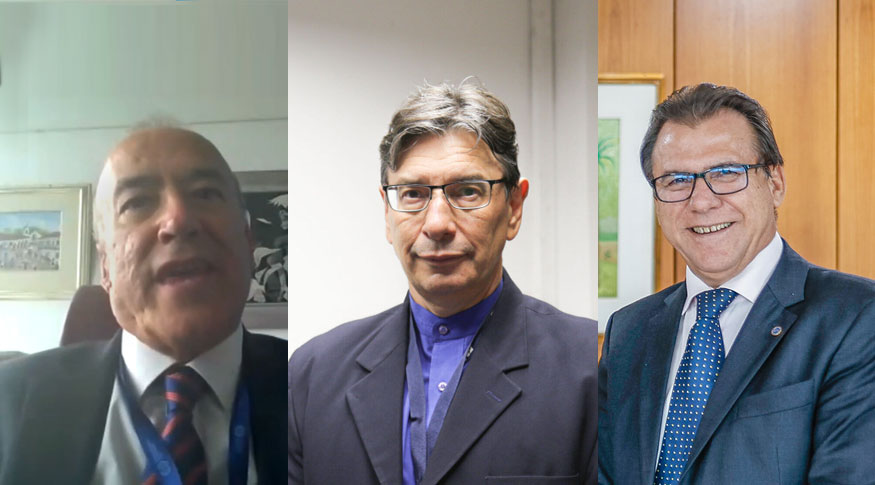
The IBGE and the International Labor Organization (ILO) began this Tuesday, 9, a cycle of two-day meetings with National Statistical Offices (NSOs) of G20 members to discuss current practices, data gaps and priority areas for the production of statistics on gender and care work. It aims at fostering the interchange of challenges and complexities of measuring care work, as well as at sharing good practices among the countries.
The series of meetings provided participants with the opportunity to contribute to a meeting coordinated by the ILO to establish international standards on the statistical definitions of care work, still being developed. Participants were invited to express interest in participating in a new Experts Working Group, summoned by the ILO, to support the definition of statistical standards.
Called "G20 parallel event to advance in the measurement of care work and care economy to support gender autonomy and equality," the meeting was opened by Luiz Marinho, Minister of Labor, and Rafael de Medina, ILO´s Director of Statistics. Marinho highlighted the preparation of the meeting of G20 Ministers of Labor, scheduled for July 25-26 in Fortaleza (CE).
"Taking about care is very important for us and it is a priority for the Brazilian G20 Presidency. We have noticed a common ground in gender equality that care work should not fall disproportionately on persons, especially women and black women," highlighted the Minister.
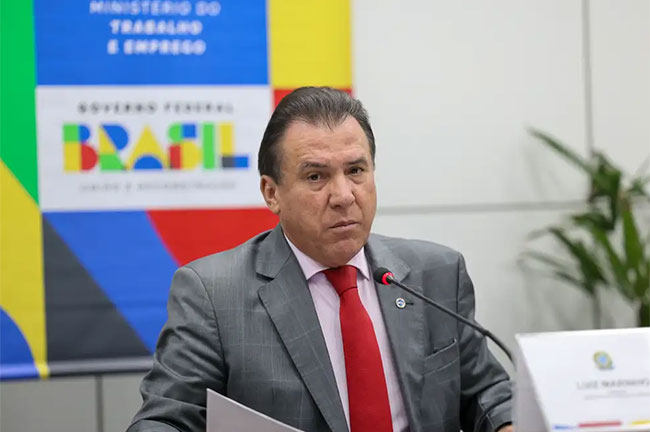
Marinho noted that care economy includes sectors like health, education and social assistance, which are key for the society to work. These sectors not only create jobs, but also sustain the workforce by allowing that person’s balance care responsibilities with work.
"Domestic care hinders the insertion of women in the labor market. Care as women´s responsibility is considered natural. As a society, we must move this idea away. We need to work to reduce the overload of women and allow them to reach their professional goals and economic autonomy. It is fundamental to value all care professionals, including domestic workers, as well as to jointly blame the State, society, companies and families. It is an economic requirement. By advancing this agenda, we are paving a more egalitarian and prosperous way for all."
The Minister of Labor highlighted the work of the Ministry of Development and Social Assistance in sending to the Congress the proposal of the National Care Policy, as well as in coordinating the interministerial working group that created the proposal. He also highlighted the approval, in July 2023, of the Social Equality Law, which enforces companies with more than 100 employees to adopt measures of wage equality and actions against discrimination.
Marcio Pochmann, President of the IBGE, thanked the participation of the representatives of G20 countries and highlighted the importance of the initiative. "On behalf of the IBGE we are grateful to those who contributed to advance such a strategic theme today and in the future, recognizing that there is still a way to go in terms of methodology and, at the same time, very important experiences from several countries under the scope of the G20. I expect to build an agenda that allows us to advance even more on this theme," stated Pochmann.
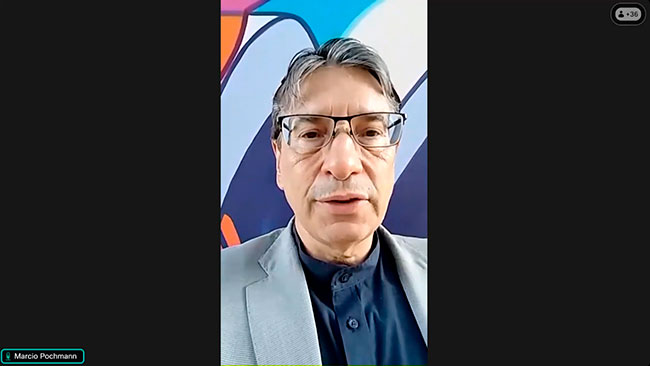
Dalea Antunes, Special Advisor of the Presidency and Coordinator of the IBGE´s Thematic Commission of Social Relations of Gender and Sexuality, presented the current debate, still in the test phase, on the possibilities of changes in the Continuous PNAD in terms of measuring care, aiming at a better accuracy. According to her, the gender issue is much more wide than a technical survey could account for, as well as it goes through all the IBGE areas and steps.
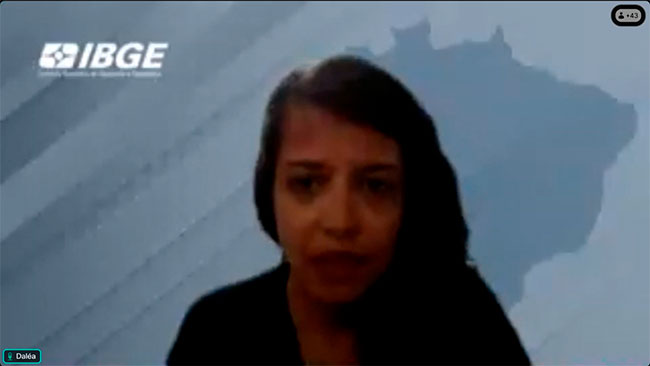
In the event, she highlighted the methodological challenges in measuring care in the current IBGE surveys. She informed that the "other forms of work" module, which is part of the fifth interview of the Continuous PNAD, is being redesigned. "There is a partnership between the IBGE and the National Secretariat of Care in order to capture with more precision and accuracy the part of the work of care with people and the part of household tasks, carried out in their own households as an unpaid work," reports Antunes.
Rafael de Medina, ILO´s Director of Statistics, emphasized that the discussions in the event will serve to prepare the meeting of the G20 ministers of Labor. He mentioned the recent international labor conference, in Geneva, that produced a resolution related to care economy.
"All agents - workers, entrepreneurs, governments - agree that care economy should be improved to advance towards healthy policies. We all suffered with Covid, in which care was key. With the demographic transition, many countries need to increase the number of caretakers for the population that is ageing, as well as for children care. Under the statistics point of view, it is clear that we have a great responsibility to pursue the best measurements and policies. To do this, we received last year the ILO mandate to launch the creation of standards correctly. In this regard, we have the privilege of having many countries involved and fortunately this partnership with the IBGE," stated Medina.
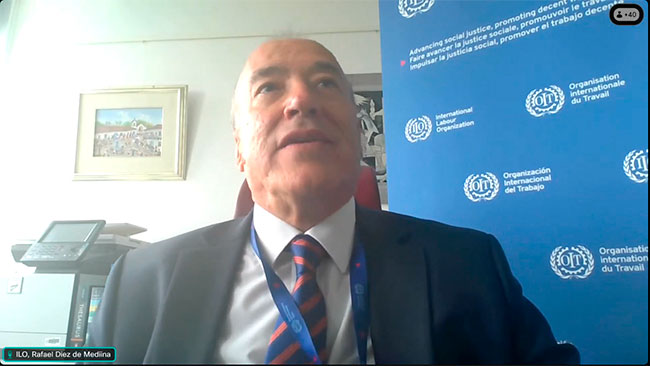
The series of meetings matches with the Brazilian presidency of G20, from December 1, 2023 to November 30, 2024. The G20 Leaders´ Summit is scheduled for November 18-19, 2024. Under the Brazilian presidency, the priorities established for the newly created G20 Working Group for Women Empowerment (Sherpa track) include focus on equality and autonomy to face the effects of the sexual division of work and on care work policies to approach the undervaluation of the unpaid work in the care economy.
Roberto Sant´ Anna, IBGE´s International Relations Manager, highlighted that the care theme assumes relevance at global level. Last July 2, Olivier De Schutter, United Nations´ Special Rapporteur on Extreme Poverty, asked a compensation for 16.4 thousand daily global hours of unpaid domestic or care work in a report presented to the Council of Human Rights, mainly involving women. The independent expert affirmed that it is possible to fund these services with progressive tax policies, like taxing inheritance and large fortunes and combating illicit financial flows and tax evasion.
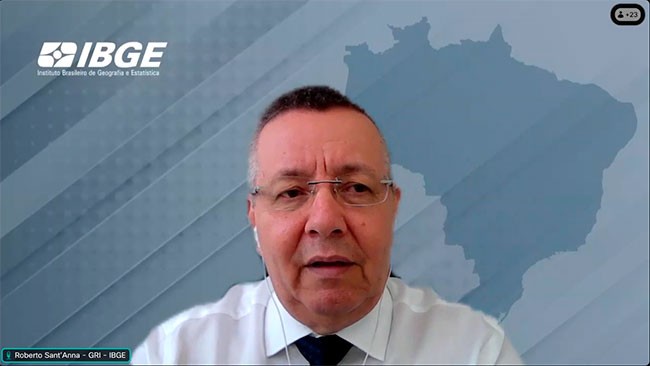
It arises in an important moment, as G20 members step up efforts to ensure the 2025 goal, established in 2014 in Brisbane, to reduce the participation disparity in the workforce between men and women by 25% up to 2025. The goal aims at bringing 100 million women to the labor market, increase inclusive and global growth, and reduce poverty and inequality. The series of meetings will contribute to this goal and might provide important information to the deliberations of the G20 Working Group for Women Empowerment.
On the first day of the meeting, Australia, China, Indonesia, South Africa, Turkey, Italy, Mexico, Canada and Brazil presented their measurement models and challenges faced by their NSOs representatives. Representatives from the European Commission, through Eurostat, Economic Commission for Latin America and the Caribbean (Eclac), United Nations Economic Commission for Europe (UNECE), UN Women, International Monetary Fund (IMF), Inter-American Development Bank (IADB) e Organization of Islamic Cooperation spoke as well.
The second day of the meeting was dedicated case studies. Dalea Antunes talked about care work in Brazil, including data collection history and new challenges. Still in the 1990s, the household survey, which was still not continuous, already asked whether household tasks were carried out, though it did not investigate the number of hours, which came into effect from 2001 onwards. Between 2012 and 2015, the survey collected the time by age group of the resident who received care and the hours dedicated to household tasks. "From 2015 onwards, the survey introduced significant changes, showing a list of tasks and care and also asking about care of relatives living in other households," explains Antunes. Among the challenges pointed out, difficulties to access forest areas, high refusal rates in high-income areas, illiteracy in some regions, difficulties to find the selected resident, lack of time or availability of informants to answer the survey. Antunes informed that the new survey model under development will bring innovations for the "other forms of work" block, in the questionnaire of the continuous household sample survey.
In 2009, a pilot survey on time use was carried out. Although it was not released, it provided some lessons. At the time, some challenges were pointed out, like difficulties to access forest areas, high refusal rates in high-income areas, illiteracy in some regions, difficulties to find the selected resident, lack of time or availability of informants to answer the survey.
According to Antunes, besides redesigning the "other forms of work" block in the Continuous PNAD, a debate aims at including some type of measurement the time use of persons in the Consumer Expenditure Survey (POF). A process that is also under debate with the National Secretariat of Care. "Building the sample involves challenges, but we are very excited with such possibility," says Antunes. She also presented the processes in the Continuous PNAD that measure paid domestic work and the possibilities that these data provide to better understand this category.
The coordinator told that the change in the "other forms of work" module should be implemented in the questionnaire and go live from the first quarter of 2025 onwards. Cognitive tests went to the field in May and should go again in July. Pilot tests will also be conducted in the second semester. It aims at capturing more accurately the number of hours spent by persons in homework without any compensation: household tasks and care of persons.
"We are confident in a better collection of time spent with unpaid work in the Continuous PNAD and in the emerging possibility of including a time use module in POF, to be tested in the field, by the end of the year or beginning of next year," signaled the coordinator.




















